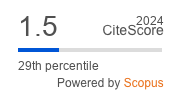Network behavior as a specific feature of generation Z communicative competence and their readiness for online learning
DOI:
https://doi.org/10.5753/jis.2023.3034Keywords:
Generation Z, Digital generation, Cohort Analysis, Communication Practices, Digital CultureAbstract
The article presents the results of a longitudinal study of young people belonging to the category of generation Z. The study was conducted over a period of 3 years, starting in 2019, and was devoted to studying the formation of social characteristics of generation Z under the influence of socialization in the digital environment. The study also included a comparative analysis of the younger and older age groups in Generation Z, who are now high school students and students. The results of the study showed that the younger representatives of generation Z have a more pronounced desire for individualism and self-organization on the Internet. The social characteristics of generation Z must be taken into account when organizing online learning.
Downloads
References
Balmaeva, S., Shlegel, E. (2019). Kul'turnye navyki rossijskogo pokoleniya Z. YAroslavskij pedagogicheskij vestnik. 109 (4). [link] (accessed 02.10.2023).
Bauerlein, M. (2009). The Dumbest Generation: How the Digital Age Stupefies Young Americans and Jeopardizes Our Future (Or, Don’t Trust Anyone Under 30). NJ:Tarcher. 272 p.
Bogacheva, N., Sivak, E. (2019). Mify o «pokolenii Z». Sovremennaya analitika obrazovaniya. 22 (1): 1-64.
Bolshakov, N. (2013). Izmerenie kul'turnogo kapitala: ot teorii k praktike. Monitoring obshchestvennogo mneniya: ekonomicheskie i social'nye peremeny. 118(6). P. 3-12.
Carr, N. (2008). Is Google Making Us Stupid? What the Internet is doing to our brains! The Atlantic. [link] (accessed 02.10.2023).
Carr, N. (2010). The Shallows: What the Internet is Doing to Our Brains. NY: W. W. Norton and Co. 304 p.
Coates J. (2011). Pokoleniya i stili obucheniya. M.: MAPDO. 121 p.
Ignatjeva, O., Kondratenko, K., Pletnev, A., Tolstikova I. (2020). Generation Z and Its Value Transformations: Digital Reality Vs. Phygital Interaction // Digital Transformation and Global Society. DTGS 2020. Communications in Computer and Information Science. St. Petersburg, Russia. 2020. Revised Selected Papers. Springer, 2020. Vol. 1242. P. 47-60.
Ilyinsky, I. (2016). Sobranie sochinenij: Molodezh'. Molodezhnaya politika. Molodezhnaya organizaciya. M.: Terra. In 5 vols. Vol. 2. 166 p.
Kaku, M. (2012). Fizika budushchego. M.: Alpina. 736 p.
Kasperovich, O. (2019). Mediapredpochteniya pokoleniya Z: otkaz ot tradicionnyh SMI i zhizn' v «cifre». Mediana.by . 2019. [link] (accessed 04.11.2022).
McCrindle, M., Fell, A. (2020). Understanding Generation Alpha. McCrindle Research. Norwest. [link] (accessed 02.09.2023 ).
Matsuda, M. (2021). Living in a VUCA World, What Schools Need to do to Survive and Thrive in the Post Pandemic World. [link] (accessed 03.05.2022).
Mazilov, I. (2018). Innovacii v sovremennom obrazovanii: psihologiya vs pedagogiki. YAroslavskij pedagogicheskij vestnik. (1): 8–22.
Miroshkina, M. (2017). Interpretacii teorii pokolenij v kontekste rossijskogo obrazovanija. Jaroslavskij pedagogicheskij vestnik. 6: 30–35.
Palfrey, J., Gasser W. (2011). Deti tsifrovogo veka / transl. N. G. Yatsyuk. M: Eksmo. 368 p.
Population of the Russian Federation by sex and age [link] (accessed 02.09.2023).
Prensky, M. (2001). Digital Natives, Digital Immigrants. On the Horizon. 9 (5): 1-6.
Shamis, E., Nikonov, E. (2016). Teorija pokolenij: neobyknovennyj Iks. M.: Universitet «Sinergija». 140 p.
Scholz, C., Grotefend, L. (2019). Generation Z in Germany: The (Un) Typical German? // Generations Z in Europe (The Changing Context of Managing People). Emerald Publishing Limited, Bingle. P. 169-197. DOI: 10.1108/978-1-78973-491-120191017.
Small, G., Vorgan, G. (2008). iBrain: Surviving the Technological Alteration of the Modern Mind. NJ: HarperCollins Publishers. 256 p.
Stillman, I., Stillman, D. (2018). Pokolenie Z na rabote. Kakego ponjat' i najti s nim obshhij jazyk. M.: MIF. 272 p.
Strauss, W. Howe, N. (1991). Generations: The History of America’s Future, 1584 to 2069. NJ: Morrow, 1991. 538 p.
Schwieger, D., Ladwig, Ch. (2018). Reaching and Retaining the Next Generation: Adapting to the Expectations of Gen Z in the Classroom. Information Systems Education Journal. 16(3): 45-54. [link] (accessed 02.09.2023).
Tapscott, D. (2008). Grown up Digital: How the Net Generation is Changing Your World. NJ: McGraw-Hill. 384 p.
The Screen Age. (2016) [link] (accessed 02.09.2023)
Tolstikova, I., Ignatjeva, O., Kondratenko, K., Pletnev, A. (2022). Designing educational trajectories for generation Z: identifying cognitive factors. Communications in Computer and Information Science. volume 1503: 266-279.
Tolstikova, I., Ignatjeva O., Kondratenko K., Pletnev A. (2021). Generation Z Social Capital as a Result of Digital Socialization // CEUR Workshop Proceedings. International Conference "Internet and Modern Society", IMS 2021, 17 June 2021 - 20 June 2021. P. 179 – 190.
Vyugina, D. (2017). Osobennosti mediapotrebleniya cifrovogo pokoleniya Rossii // Mediaskop. Is. 4. [link] (accessed 05/03/2022).
Zherebyonkova, N. (2020). Lyudi Z: kak najti podhod k centenialam. [link] (accessed 02.10.2023).
Downloads
Published
How to Cite
Issue
Section
License
Copyright (c) 2023 Irina Tolstikova, Olga Ignatjeva, Konstantin Kondratenko, Alexander Pletnev

This work is licensed under a Creative Commons Attribution 4.0 International License.
JIS is free of charge for authors and readers, and all papers published by JIS follow the Creative Commons Attribution 4.0 International (CC BY 4.0) license.








